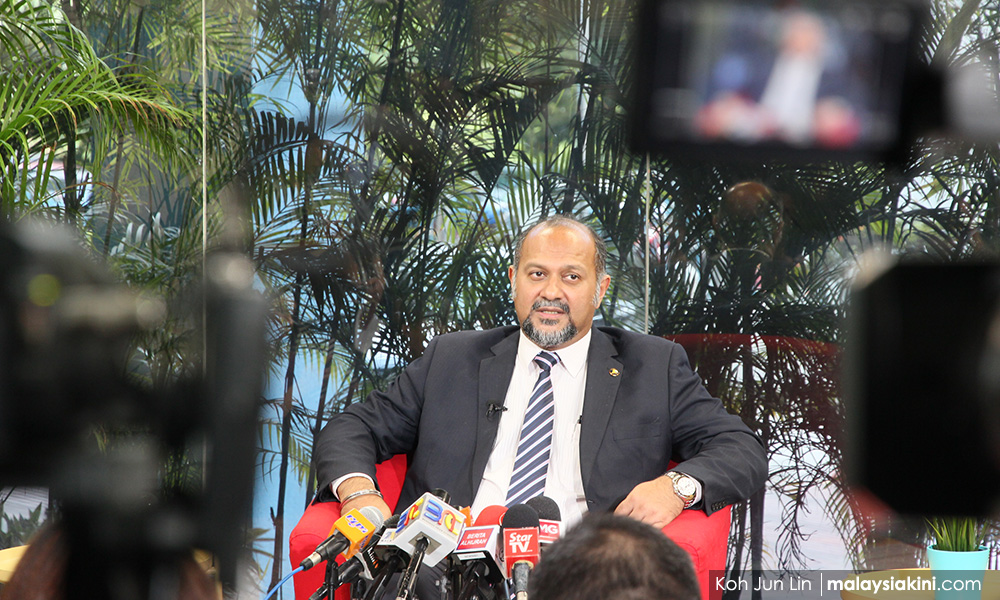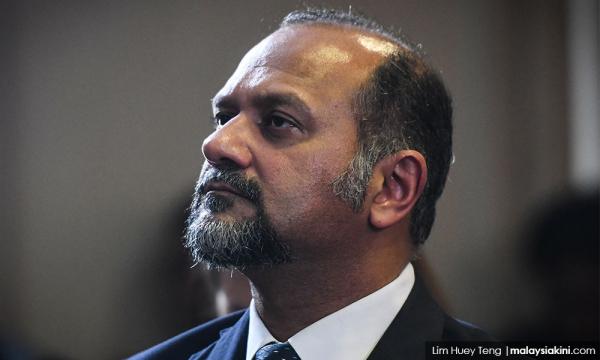COMMENT | Dear Communications and Multimedia Minister Gobind Singh Deo,
As activists and academics who have scrutinised developments on media freedom and media democratisation for over two decades, many of us welcome your announcements of amendments to the Communications and Multimedia Act 1998 (CMA), but we feel the scope of your review is too limited.
Your focus seems to be on Section 233, but not on Section 211 (on prohibition of offensive content), or Section 263 (website blocking).
There were no references in your announcement about reform of the Malaysian Communications and Multimedia Commission, or media reforms as far as democratising licences to broadcasters.
The CMA does not provide for an enabling environment for independent media, or guidance on how we can prevent dominance of large corporations or conglomerates in the media industry.
We are keen to see how a reform will encourage the missing third tier of community media, essential to sustaining media democratisation. As we have already moved into a digital era, the issues of ownership and content are interconnected and need to be approached together.
Thus, we hope for a thorough review of licensing requirements, strengthening the introductory public interest preamble to the act in line with the important concept that the airwaves are a public asset and need to be regulated in the public interest (whether the broadcaster or internet service provider is commercial-, public- or community-owned), and strengthening of anti-competition practices.
Kickstarting discussions
These are long-term changes, but discussions with interested communities, NGOs and the affected business community need to begin as soon as possible, ideally led by a political vision of a media ecosystem that privileges the public interest and media diversity.
We may not get all the changes at first go, but it is important that these issues are placed on the ministry’s reform agenda so we can come back to it again, maybe with a fresh set of objectives or with a more diverse range of stakeholders.
We agree that not all legal changes need to happen immediately, but Minister Gobind, a good start would be if you can share a work plan, or a set of milestones and an outreach to the different stakeholders, including civil society.
Legal changes are political acts, but they can also represent society’s aspirations and how we wish to express our values and freedoms. There will be differences and contestations, but how these will be considered can be shaped by you, Minister.
Do you value a collaborative approach and one that involves stakeholders? Will you get your ministry to engage with multiple stakeholders more actively whenever there are changes planned? Or will you only respond to corporate and political interests and restrict your consultation to legal expertise?
While legal inputs are important, we trust you appreciate that the laws are not only for the lawyers.
Laws are norm- and value-setting instruments. They will define how we, as a society, relate to each other and interact with the institutions of the state.
Victims of state abuses are many and of different backgrounds. Our view is that excluding the voices of those who have experiences with the law will render any changes a top-down and exclusive approach. A bad law-making process is an injustice to society.
Ways to solicit input
There are several ways in which experiences, opinions, expert views and other inputs can be solicited. Face-to-face meetings are of high importance.
Yes, there are many interest groups and individuals with their own views and agendas. But we cannot have a situation where instead of opening up avenues for discussions, we see exclusive meet-ups, run precisely the way the previous regime did, with full secrecy.
Apart from meetings, the ministry could set up a dedicated email or page online to solicit public feedback.
Set a time period and provide adequate information on what the proposals are, and open for public comments. Your staff will have to sift through the comments but there might be useful, important and necessary ideas to consider.
Instead of talking about replicating India’s Aadhaar, maybe look at how the Telecom Regulatory Authority of India (TRAI) ran its public consultation on the issue of net neutrality a few years ago.
In the meantime, here are some of the groups that have voiced concerns and made recommendations regarding reforms of the CMA. Some were also submitted to the Institutional Reform Committee, which completed its tasks in July this year.
For a start, we hope you will extend invites to NGOs that have advocated for these reforms, among them (not an exhaustive list): the Centre for Independent Journalism, Sinar Project, Empower, Suaram, Aliran, Article 19 Malaysia, Civicus, Geramm, Pusat Komas, the Malaysian Centre for Constitutionalism and Human Rights, journalists and workers in the creative industries, as well as independent media outlets.
However, there are academics, communities and individuals who have had to bear the brunt of censorship, lack of access and harassment who will also be able to give you important perspectives and insights.
We look forward to an open and transparent engagement with your ministry on the reform involving the communications and multimedia industries and regulations.
GAYATHRY VENKITESWARAN is assistant professor at the University of Nottingham Malaysia and SONIA RANDHAWA is director of the Centre for Independent Journalism.
The views expressed here are those of the author/contributor and do not necessarily represent the views of Malaysiakini.


